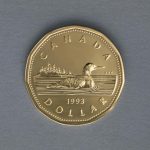On Thursday (in GMT terms) gold for delivery in December traded within the range of $1,318.6-$1,329.4. Futures closed at $1,326.0, rebounding 0.17% from Wednesday’s close. It has been the 165th gain in the past 348 trading days. The daily low has been a level unseen since September 21st, when the commodity went down as low as $1,310.9 per troy ounce. The precious metal has increased its advance to 1.11% so far during the current month, after losing 3.40% in August.
On the Comex division of the New York Mercantile Exchange, gold futures for delivery in December were edging up 0.33% on Friday to trade at $1,330.4 per troy ounce. The precious metal went up as high as $1,331.0 during mid-European trade, while the current daily low was at $1,322.0 per troy ounce, recorded during the early phase of the Asian trading session.
The US Dollar Index, a gauge reflecting the relative strength of the greenback against a basket of 6 other major currencies, was edging up 0.28% on the day at a level of 95.70, after going up as high as 95.77 earlier. The latter has been the highest level for this index since September 21st. The gauge has trimmed its drop to 0.29% so far in September, following a 0.54% advance in August.
Gold futures initially plummeted to fresh 1-week lows on Thursday, after the US final GDP estimate topped both market expectations and the 2nd estimate. Economy was reported to have expanded 1.4% during the second quarter of 2016 compared to the same period a year earlier (1.1% in the revised data), accelerating from a 0.8% growth in Q1. Consumer spending continued to support economic growth, despite it rose at a slower-than-expected pace. At the same time, US exports grew more in Q2 compared to the revised data, while business investment expanded for the first time in three quarters.
However, later during Thursdays US session futures reversed their direction, as it became clear that pending home sales in the United States unexpectedly shrank in August from a month ago. Contracts to buy previously owned homes dropped 2.4% last month, following a revised down 1.4% increase in July. Market consensus pointed to a 0.3% growth in August.
Additionally, the yellow metal, as well as other safe-haven assets, seemed to have been boosted, after news in the media appeared that 10 hedge funds had reduced their exposure to Deutsche Bank, following the recent USD 14-billion penalty imposed on the lender by US regulators. Sanctions were in regard to Mortgage Backed Security-related operations in the run-up to the financial crisis.
Today gold trading may be strongly influenced by the final report on US consumer sentiment, released by Thomson Reuters in cooperation with the University of Michigan. It may show that consumer confidence in the country improved in September from a month ago. The final reading of the corresponding index, which usually comes out two weeks after the preliminary data, probably came in at 90.0, improving from a preliminary value of 89.8. In August the index stood at a final reading of 89.8, down from a preliminary value of 90.4. In case the final value for September outpaced the median forecast by analysts, this would have a moderate bullish effect on the US dollar and a moderate bearish effect on gold. The final reading is due out at 14:00 GMT.
A separate report by the US Bureau of Economic Analysis may reveal that the Core PCE Price Index, the preferred measure of inflation by the Federal Reserve, rose 1.7% year-on-year in August, according to market expectations. Annualized PCE inflation was at 1.6% in the previous five months. At the same time, personal spending in the country is seen growing 0.1% in August, according to expectations, while personal income is expected to rise for a 17th consecutive month in August, up at a monthly rate of 0.2%. Higher-than-anticipated rates of increase would certainly support the dollar and pressure gold. The official numbers are expected at 12:30 GMT.
These data points are to provide further clues over whether macroeconomic environment is strong enough to withstand a potential raise in the target range for the federal funds rate.
Meanwhile, during her testimony before Congress on Wednesday Federal Reserve Chair, Janet Yellen, did not offer any clues on the Banks future policy, but, yet, she noted there was no “fixed timetable” for adjusting the current policy stance. Yellen stressed that if current job growth rate continued, it may cause the economy to overheat. If such a scenario unfolds, the Federal Reserve may be urged to remove policy accommodation at a faster pace than expected.
According to CME’s FedWatch Tool, as of September 29th, market players saw an 8.3% chance of a rate hike occurring at the Federal Reserve’s policy meeting in November, down from 10.3% in the prior business day, and a 52.0% chance of a hike in December, down from 53.1% in the preceding business day. As far as the February 1st 2017 meeting is concerned, the probability of such a move was seen at 55.9% on September 29th, or unchanged compared to the prior business day.
Elsewhere, silver futures for delivery in December were advancing 0.70% on the day to trade at $19.322 per troy ounce, after going up as high as $19.400 a troy ounce during the mid phase of the European trading session.
Daily, Weekly and Monthly Pivot Levels
By employing the Camarilla calculation method, the daily levels of importance for gold are presented as follows:
R1 – $1,327.0
R2 – $1,328.0
R3 (Range Resistance – Sell) – $1,329.0
R4 (Long Breakout) – $1,331.9
R5 (Breakout Target 1) – $1,335.4
R6 (Breakout Target 2) – $1,336.9
S1 – $1,325.0
S2 – $1,324.0
S3 (Range Support – Buy) – $1,323.0
S4 (Short Breakout) – $1,320.1
S5 (Breakout Target 1) – $1,316.6
S6 (Breakout Target 2) – $1,315.1
By using the traditional method of calculation, the weekly levels of importance for gold are presented as follows:
Central Pivot Point – $1,333.5
R1 – $1,356.0
R2 – $1,370.4
R3 – $1,392.9
R4 – $1,415.5
S1 – $1,319.1
S2 – $1,296.6
S3 – $1,282.2
S4 – $1,267.9
In monthly terms, for the yellow metal we have the following pivots:
Central Pivot Point – $1,330.8
R1 – $1,354.8
R2 – $1,398.1
R3 – $1,422.1
R4 – $1,446.0
S1 – $1,287.5
S2 – $1,263.5
S3 – $1,220.2
S4 – $1,176.8





